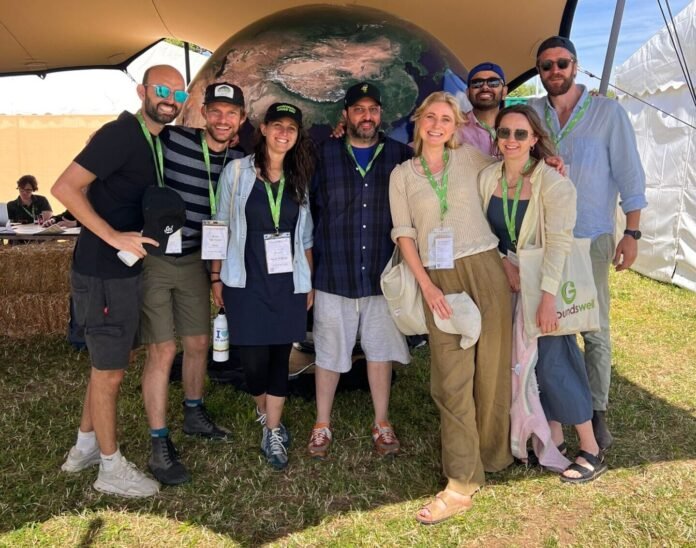Regenerative agriculture is rapidly moving from a niche concept to a mainstream imperative. As farmers, food companies, and investors increasingly recognize its potential to restore soil health, enhance biodiversity, and mitigate climate change, a critical debate is emerging: what role, if any, should deep technology play in this inherently biological and often low-input approach?
For many, the essence of regenerative agriculture lies in working with nature, not against it. This perspective often views high-tech solutions as a distraction or even a detraction from the fundamental principles of ecological harmony. Yet, to ignore the potential of technological innovation in a sector facing immense global challenges — from food security to climate volatility — would be to leave significant efficiencies and improvements on the table. The truth, as is often the case, lies in a nuanced understanding of how deep tech, when applied thoughtfully and with the right intentions, could be a powerful ally in the regenerative transition.
The urgency of our environmental and health crises demands accelerated solutions. As chef and food system visionary Dan Barber eloquently put it on Koen’s Investing in Regenerative Agriculture and Food podcast, “We don’t have that [200 years]… What AI presents for us, I think, is an opportunity to do this kind of thing much faster. That’s exciting.”

Barber, while bullish on AI, stresses that its utility is entirely dependent on “whose hands it’s in, and to what ends?” He envisions AI as a tool that could dramatically speed up the painstaking process of plant breeding, enabling us to identify and propagate genetics best suited for specific ecological conditions, rather than a “dumbed-down” variety designed for universal applicability. For Barber, AI holds the potential to be “utilized in the service of biology.”
This perspective aligns with the idea that deep tech can amplify biological processes rather than replace them. However, it also underscores the critical need for appropriate data and foundational understanding. As Brazilian scientist Antonio Nobre highlighted in his appearance on the podcast, our understanding of biological complexity, even at the most fundamental level, is still nascent. He challenges the “central dogma” of molecular biology, arguing that DNA alone does not define an organism; the cellular environment and epigenetic factors play equally crucial roles. “We should be humble,” Nobre cautions. “We know virtually nothing of this complexity, and we are starting to touch the tip of the iceberg.”
Nobre’s insights serve as a crucial reminder that while technology can help us process vast amounts of information, it must be guided by a profound respect for, and a deep understanding of, ecological systems. Applying advanced analytics to an incomplete or flawed model of nature risks generating equally flawed solutions.
This brings us to the critical challenge of data. Ethan Soloviev, a farmer and the chief innovation officer at HowGood, where he manages the world’s largest product sustainability database, emphasizes the need for “large ecological models”— I trained not on human-written texts, but on “the patterns and the language of nature,” he told Koen on the podcast.
Soloviev envisions “large action models” that learn from cause-and-effect loops in real-world ecosystems. “If we want to regenerate nature,” he states, “then we need… AI questions about that. It can’t be trained on what some white dude wrote on the internet; it needs to be trained on what’s happening in ecosystems.” This concept of “ecosystem oracles” is vital; for deep tech to truly serve regenerative agriculture, its algorithms must be fed with data that reflects the dynamic, interconnected complexity of natural systems, not just simplified agricultural metrics.
Regen ag farmer and pioneer John Kempf has consistently advocated for a nuanced view of technology in agriculture, emphasizing its role in enhancing biological processes. In a recent AgFunderNews article, he argues that tools, when used to understand and support natural systems, can lead to profound improvements in soil health and crop resilience.

For example, precision agriculture technologies that help monitor soil moisture, nutrient levels, and plant health can inform more precise and less wasteful applications of inputs, or even help farmers understand how to reduce their reliance on or completely eliminate external inputs by fostering healthy microbial communities.
He also recently launched his digital twin, a chat interface trained on all of his materials, speeches, podcasts and articles over the years so that users can ask “him” questions and converse with him!
So, where does all of this leave us? The contention that regenerative agriculture does not need technology fundamentally misunderstands the potential for deep tech to accelerate and optimize the transition. Ignoring advancements in AI, biotechnology, genetics, robotics, and automation would be akin to fighting a modern battle with an outdated arsenal. The key is not to reject technology outright, but to wield it judiciously and with a clear purpose: to support, enhance, and ultimately understand the intricate biological processes that underpin true regeneration.
The future of regenerative agriculture will likely be a hybrid one, where the wisdom of traditional ecological practices is synergistically combined with the most insightful and biologically aligned deep technologies. This powerful combination holds the promise of not only leaving no efficiencies on the table but also of genuinely transforming our food systems for a healthier planet.
What do you think? Come and hear us speak on a panel at Groundswell in the UK on July 2 or get in touch at [email protected] or [email protected] as we continue this conversation.






